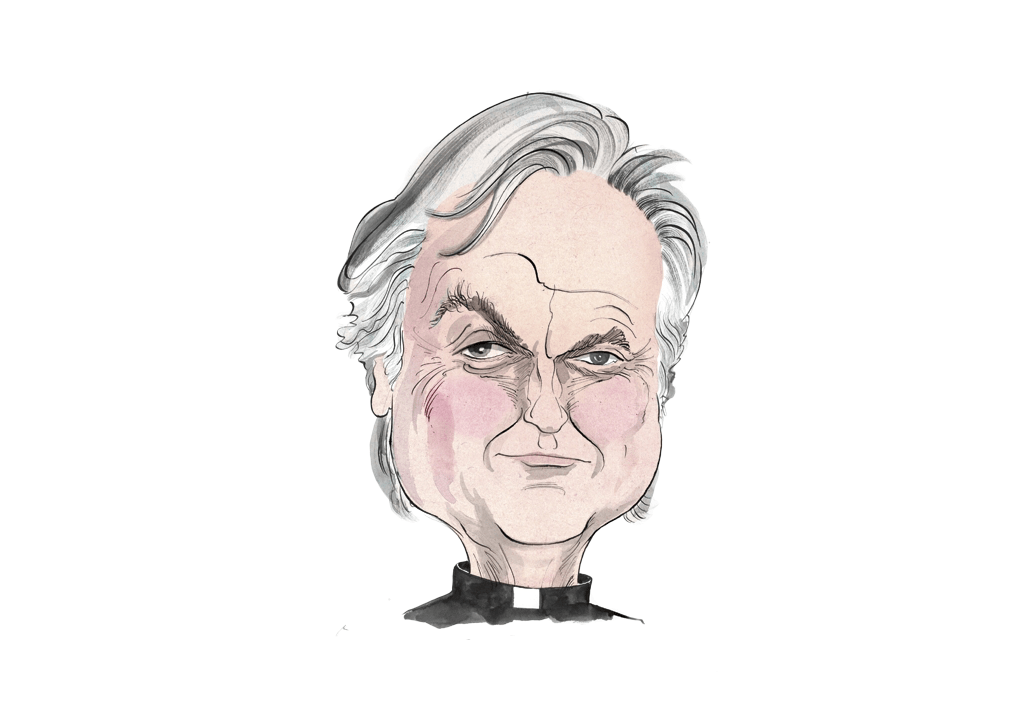Richard Dawkins is no longer a humanist. At least, not one that deserves to be honoured as such, according to the American Humanist Association (AHA), which excommunicated him from the Humanist of the Year award last week. The fatwa issued by the AHA, which generously includes ‘critical thinking’ in a list of its own Ten Commitments, accused the evolutionary biologist of ‘demean[ing] marginalized groups’ when he asked his Twitter followers to ‘discuss’ the vilification of critics of transgender theory. Proponents of the new blasphemy codes have seemingly forgotten the decades of humanist work in favour of free speech.
More qualified persons can better comment on Dawkins’s implied scepticism of modern gender theories but the central issue is over what can and cannot be questioned. Prior to the American Humanists’ edicts — made against an evolutionary biologist for questioning identities emanating from human biology — the same staunch atheist has been attacked for criticising Islamic theology.
Dawkins has now been cancelled both as a ‘transphobe’ and an ‘Islamophobe’ for his ‘hurtful’ speeches against Islam. Had the 10th century Muslim freethinker Abu al-Alaa al-Maarri been alive today he’d probably be condemned as a ‘new atheist’, the term Dawkins and other associated intellectuals have adopted, for dubbing Islam an ‘invented fairytale’ and satirising the Quran. Then there is Ibn Rushd, Latinised as Averroes, considered by some scholars to be the founding father of secular thought in Western Europe, who would surely be slated as an ‘Islamophobe’ for his criticism of what today is recognised as Islamic sharia.
Certain ideologues are now co-operating egotistically to ensure the proliferation of their respective dogmas
Last week, Algerian author Said Djabelkhir was sentenced to three years in prison for calling Quranic tales ‘mythical’. Zara Kay, founder of Faithless Hijabi, escaped death threats in Tanzania earlier this year for supposed heresy against Islam. Then there are the scores of alleged apostates killed, executed or languishing in prisons across the Muslim world.
While Western liberals seem indifferent to the millions of Muslim freethinkers condemned by backwards blasphemy codes, Dawkins has been a major influence on atheists in the Islamic world. In interviews of Muslim freethinkers in articles and documentaries on atheism over the years, a name often shared as a major influence is that of Richard Dawkins. Following AHA’s revocation of the humanist award, Ex-Muslims of North America (EMNA) co-founder Sarah Haider tweeted in support of Dawkins calling him a ‘personal hero’.
Many atheists of Muslim heritage have found their beliefs being echoed, if not formed, by Dawkins; his critiques of creationism, refutation of Quranic fables, his denunciation of religious genocidal hysteria, and his widely misinterpreted condemnation of cultures that force women to cover up. While some young Westerners in the twenties and thirties might be disassociating themselves from their ‘new atheist’ teenage years, thinkers like Dawkins — and the books, articles and YouTube videos that accompanied them — have helped spur on the intellectual curiosity of a generation of non-Western freethinkers. This generation can’t organise their own humanist awards, or even express their own plight, for that would mean coming out as atheists and apostates, facing violent punishments for rebuking Islam.
In addition to his books and lectures garnering following among the atheists, Dawkins has supported freethinkers challenging the Islamist inertia in their countries and communities often risking their lives. He wrote blurbs for, among others, Ali Rizvi’s ‘The Atheist Muslim’ and Yasmine Mohamed’s ‘Unveiled’, two books narrating the experiences of Muslim heritage critics of Islam, and the challenges dissenters continue to face in the Muslim world. The Richard Dawkins Foundation for Reason and Science has long helped Muslim-heritage atheist groups and has backed the #ExMuslimBecause campaign highlighting the ramifications of free thought in many Muslim countries and communities.
Last year’s Richard Dawkins Award winner Javed Akhtar — an Indian poet, lyricist and screenwriter, who has condemned both Islamic and Hindutva radicalism in his country — calls himself an ‘equal opportunity atheist’ and an ‘atheist Muslim’. Akhtar, who founded the Muslims for Secular Democracy organisation, is a vocal critic of Islam but an adherer of his Muslim identity, personifying the difference between anti-Muslim bigotry and unapologetic castigation of Islamic dogma.
Even so, where Dawkins could once laugh off allegations of being a Satanist, or death threats for his position on Christianity or evolution, he is now being cancelled by prestigious institutions that once fought for free speech.
To paraphrase Dawkins’s The Selfish Gene, certain ideologues are now co-operating egotistically to ensure the proliferation of their respective dogmas, helped by the erasure of competing ideas. Those imagining a monopoly over truth, and permanency over the moral high ground, need a reminder that without open exchange of speech they might find wrong or offensive, what is ‘right’ and ‘true’ can never be empirically determined.






Comments